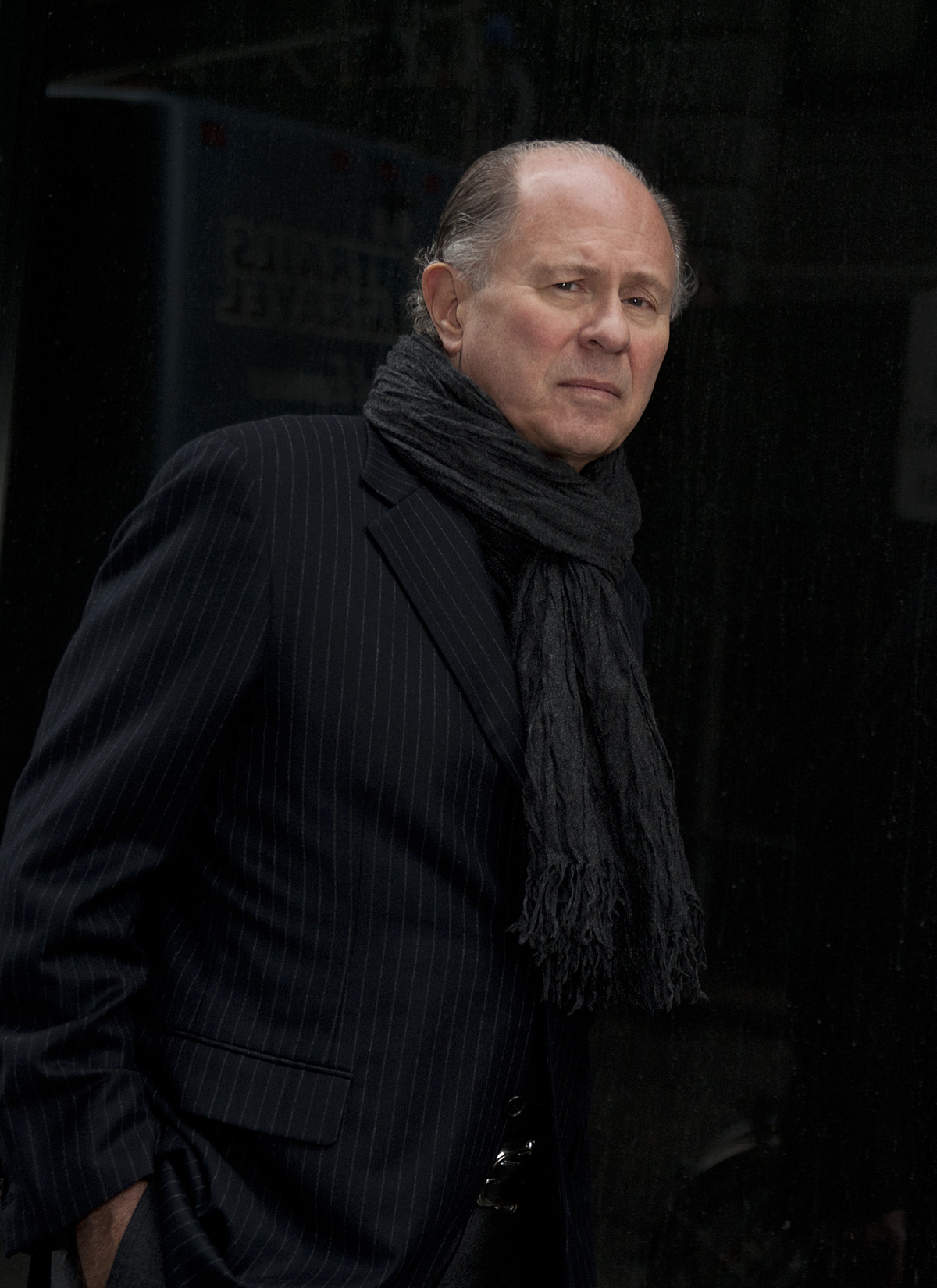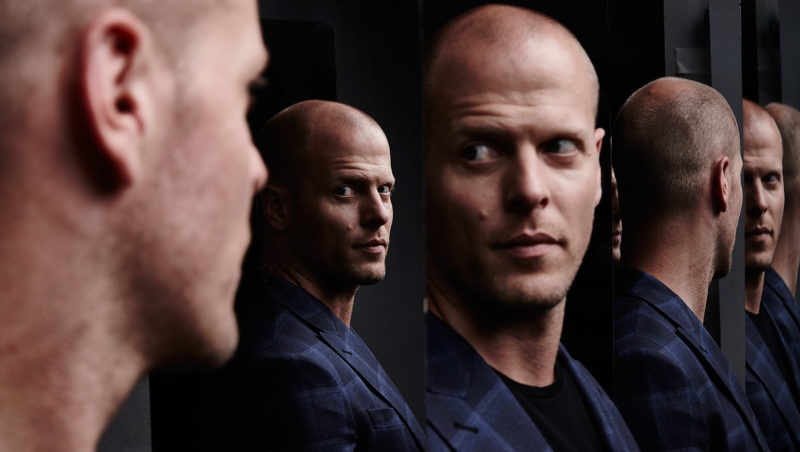YELENA DEYNEKO: What led you down this career path?
MARTIN PURIS: I wanted to be a writer, but wasn’t sure of what. When I was a kid in Chicago, it was the epicenter of a new kind of writer-oriented comedy, sort of like the singer/songwriter today. It was exciting stuff, political satire and comment: Lenny Bruce, Mike Nichols and Elaine May, Dick Gregory, Bob Newhart, Shelley Berman, Second City. I wanted to perform my own material and actually got a job at a club, but after a year I decided I hated the people and the late-night world. So I began writing for other comics and that turned out to be even worse — I’d spend all day writing material and all night watching it performed in clubs.
About 1965, advertising was exploding with great new agencies, like Doyle Dane Bernbach. Suddenly it was the business to be in. I got an offer from a production company in Chicago to freelance some radio commercials. They liked it, I liked it; I went to New York and that was that.
YD: Were you always successful?
MP: I’ve always lived under a lucky star. I hesitate to say that in case you-know-who is listening. There have been ups and downs but the business has been good to me. The one exception was selling the agency to a public company, IPG — big mistake. That was a five-year nightmare, which was the length of my contract. Prior to that, I had a great thirty years.
YD: How did you deal with clients with opposing attitudes or approaches?
MP: That lucky star again. We always had the luxury of choosing our clients, and we worked for some of the best companies on the planet: BMW, UPS, Club Med, Compaq Computers, Steve Jobs, Burger King, Aetna. And if they turned sour, we fired them.
YD: Any memorable stories?
MP: BMW is up at the top. They were a client for twenty years. We helped create them by defining who they were in a very changed world of luxury products. Of course they knew what they’d built, they just didn’t know how to articulate it. We gave them “The Ultimate Driving Machine” and they have spent forty years living by it, and living up to it. A great idea can do that for a company.
YD: What’s the most valuable lesson you’ve learned?
MP: Every detail matters. Great ideas move the world. Vision without execution is hallucination. Hire people smarter than you are. Nice people count. Bastards get their due — we hope.
Our success has been all about our partners. We built a great agency on that premise. One of the best books on the subject, Organizing Genius by the late Warren Bennis, has been in print for fifty years and it’s still the best I’ve read on the subject.
YD: What are your most satisfying achievements?
MP: Building an agency that people think was among the best ever; I regret selling it. Working with brilliant people who’ve gone on to their own great things.
YD: What’s your vision for Puris & Partners?
MP: Within every great company there’s a great story, and the value of that story, well-told, is incalculable. Our job is to find it: “The Ultimate Driving Machine,” “The Antidote For Civilization,” “The Tightest Ship In The Shipping Business.” During the last fifteen years — the “Obsession With Quarterly Earnings” era — a great many companies have lost their own stories. Watch the Super Bowl and you’ll see hundreds of millions of dollars thrown out the window. No amount of money can make up for having nothing to say.
YD: What joy do you find in your new venture?
MP: This is what I do best, and what made the business so damn much fun. Big brains, big ideas! I’m the only copywriter in the group. I decided that if we want to tell great stories we should bring in great storytellers: journalists, novelists, playwrights, screenwriters — big, big brains. Working with that level of talent is thrilling.
YD: What is the process of creating powerful company messages with just a few words?
MP: The secret is plain hard work combined with extraordinary genius talent. We spend months poring over research — theirs, ours, third-party, original — looking for clues. Who are these people? What’s their passion? What’s their flag? What do their customers really want? What do their customers feel for them, if anything? Who’s the enemy and what’s their weakness? Would anybody care if they exploded tomorrow?
YD: How has your industry changed with the internet and global access to information?
MP: The Information Revolution, enabled by digital technology, has turned the world upsidedown. The advertising community’s first response was confusion, then denial, and now delusion: the irrational belief that just being there is enough. No, the media is not the message. The message is the message.
Lack of big, important ideas is where the advertising business has failed. Ironically, they were once the masters of the art. If you have nothing important to say, it doesn’t make any difference where you say it. It still adds up to nothing more than a gigantic waste of money.
YD: What advice would you give someone starting a career in advertising?
MP: You’re getting in at the bottom, but hang in because there will be a marketing renaissance.
YD: What qualities do you seek in an employee?
MP: My rules for hiring are the same as for making a friend: smart, nice people win. I’ve tried dumb nice people and smart bastards. Neither works.
YD: Are you a curious person?
MP: Curiosity is my gift and my curse! I can’t control it. There’s nothing I like better than a radical, new idea, even if it means throwing out what I’ve done and starting again. I love new beginnings.
YD: You mentioned you love history.
MP: I’m finishing William Manchester’s The Last Lion, Volume II, one of the most interesting books ever. Manchester is a brilliant writer and researcher. I tend toward European and American history and biography. What could be more fascinating than the men who founded America? We don’t appreciate what they did and what we have.
YD: Do you have obsessions?
MP: I’m a political junkie. I’m out of politics at the moment, but I follow it like people follow a sport. And much to my wife’s dismay, I love professional football. The complexity of the game and the sheer brilliance of the athletes are amazing.
YD: How do you start your day?
MP: I turn on Morning Joe, work out in the gym three or four times a week, walk the dog. And, dirty little secret — I always read the Post. Then, if I have time, I read The Wall Street Journal. Every now and then the Times; I’m not crazy about their politics but love their features.
YD: What are some of your important rituals?
MP: I’m not a ritual person. The minute I feel myself falling into routine, I change things up!
YD: What about your spare time?
MP: I used to jump horses, now I race sailboats. I want to learn to paint and draw. I read, read, read on my iPad; I don’t have any more room for physical books. They’re stacked everywhere and we have two thousand in storage!
YD: When did you start collecting antiques?
MP: I grew up with an appreciation of eclectic antiques — English, French, Italian. We mix wonderful new things with the very old. I appreciate good pieces no matter when they were made, except I’m baffled by mid-century stuff. I hated it during the mid-century and hate it even more now.
I admire people who make real things. Craft and artistry are inspiring. Wouldn’t it be wonderful to point to a brilliant cabinet or table and say, “I made that with my own hands”?
YD: What are your most precious possessions?
MP: I have no favorites. That’s why we’ve never been able to dispose of anything! We have filled three huge storage facilities in New York with things we love but have no room for. Crazy, right?
YD: You also collect books and collaborate with writers. What subject and style do you enjoy?
MP: I learned to write by reading. As a child I imitated Hemingway and tried to imitate Dickens, the single greatest writer in the English language. My taste is hopelessly broad, from the Russian writers and poets to James Joyce and Camus to a number of current writers. The few novels I read tend to be spy novels, a release from the heavier things. I usually have two books going.
David McCullough said writing is thinking and writing well is thinking well. With apologies to the art directors I’ve worked with, I subscribe to that. Writers have had more influence than anybody. Ideas move people. They’ve caused wars and started religions. Think what it would be like to live in a world without writers and their ideas — sometimes brilliant, sometimes mad. We’re in grave danger of losing a class of thinker because it’s very hard to make a living anymore as a writer. The media vehicles that employed them are going out of business. If we lose writers, we lose a great deal.
YD: Will you do a memoir?
MP: No, my life is still being lived. I could do a tell-all, but I’d have to go into witness-protection, and you don’t meet many nice people in that program.
YD: Finish the sentences:
My work is… fun, most of the time. I have yet to accomplish what I’m capable of. I hate everything I do the minute I finish it.
My family is… more important than anything else.
Love is… according to Paul McCartney and John Lennon all you need. That and maybe a BMW.
Art is… anything done well. Creation is art and it’s everywhere. I look at the new iPhone 6 and see art. A wonderful car, an exquisite Regency dining table, a beautiful Hinckley sailboat — art, all of it. Just because you can’t hang it on a wall doesn’t mean it’s not art.
Time is… rushing.
Truth is… an essential element of trust, and trust is the most important thing two people can share.
My life is… beginning.
Martin Puris is… not a bad sort. He works hard, tries to do well and never betrays a trust.







